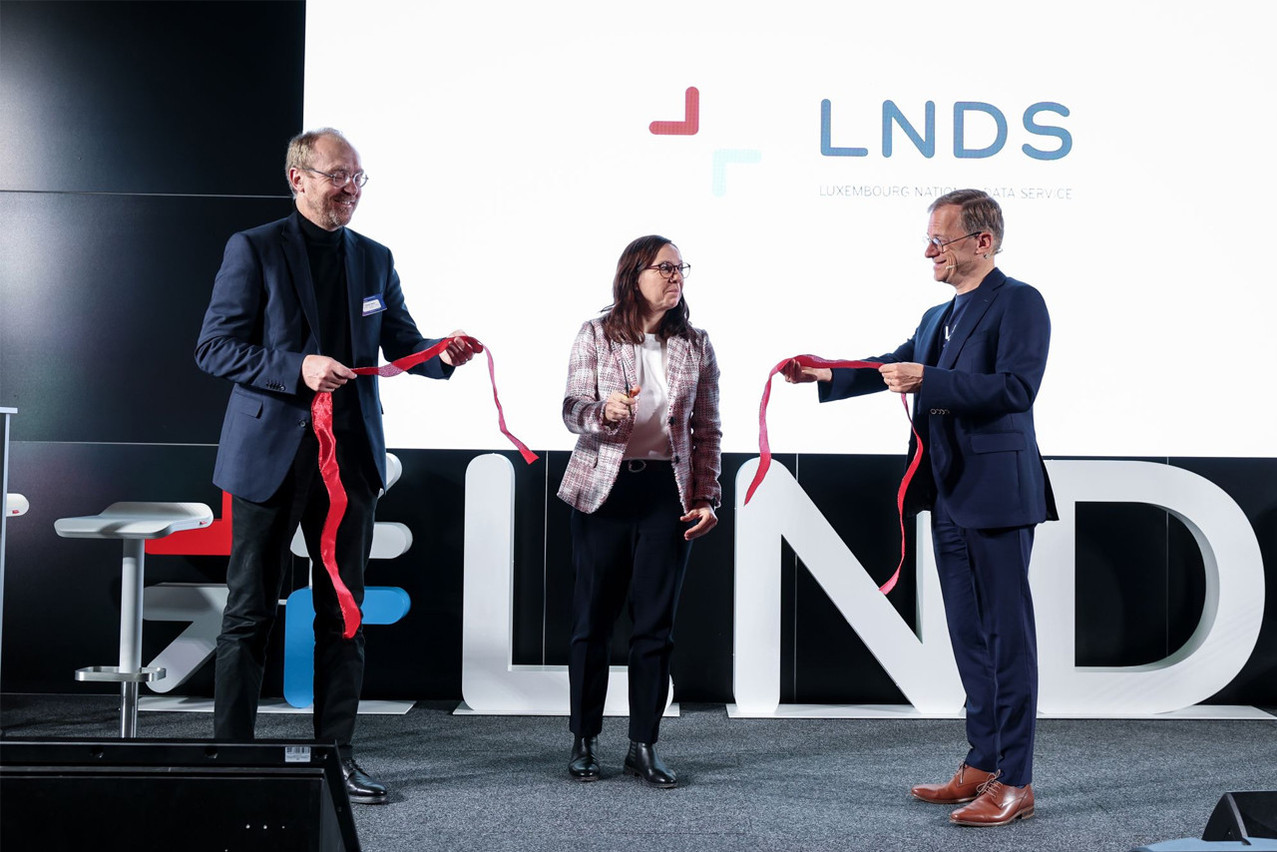Fortunately, the minister for digitalisation had already left. Present on Monday morning to symbolically cut the red ribbon, did not attend the presentation of one of the first 25 projects of the Luxembourg National Data Service in the afternoon: the Environment Agency (Administration de l’environnement) called on the LNDS--a ‘Luxtrust of data’, the fruit of an economic interest group formed by the state, Luxembourg Institute of Health and the Luxembourg Institute of Socio-Economic Research in 2022--to establish a “catalogue” of data scattered across more than ten public administrations.
This great success for the LNDS, in fact, shows just how hard the minister is going to have to work to get government departments to embrace the digital revolution. How have we so far been able to come up with coherent policies without having a 360-degree view of the data we possess, might ask the citizen who is not in the room, which is entirely filled with experts.
“We haven’t reached all the ministries yet,” admitted LNDS CEO Bert Verdonck, explaining that the data service provider has already carried out 25 projects with the 40 or so experts it employs, a number that will soon rise to 60 to reach cruising speed. “For 2024, I hope to go up to around 100, and we’re building our services so that we can respond to more and more requests.” On the stage of the European conference centre in Kirchberg, a few moments earlier, he had cited as an example the French model linked to health, which has to manage more than 1,000 projects a year.
While the project does not yet have a legal basis, and Luxembourg has not yet transposed the European Data Governance Act, the LNDS should bring the credibility of a parapublic institution to facilitating the exchange of data, either between government administrations, between researchers, or between government administrations and business--but the latter function will come later.
Education and ethics
To put it simply, whatever questions a stakeholder may have about the re-use of the data they possess, as long as they want to find value in it, they can call on this dream team that the National Commission for Data Protection (CNPD) is looking on with goodwill. At the inaugural ceremony, for example, training tools were presented, produced by the Elsi group (ethics, legal and social implications), which will eventually comprise 14 modules.
“I don't intend to certify these training courses”, explained the CEO of the LNDS, “but rather to set up partnerships like the one I announced with the Digital Learning Hub, which can take care of them. There’s nothing to stop us using other companies that specialise in this sector.” Because, in a data world that is recruiting like crazy, those who spend time training hope to be able to demonstrate to a future employer that they are indeed as qualified as they say they are.
Another service on offer is the Synthetic Data Fabric, which uses real data to create fictitious data so that processes can be verified without the risk of personal data ending up in the wild.
The LNDS also presented .
Read also
First ‘customers’ delighted, free services
Data protection is a key aspect of the LNDS. Its promoters will have to convince people over and over again that data, especially personal data--and especially health data--should not be circulated haphazardly between unspecified organisations.
The first adopters--from MyConnectivity to the national health observatory (Observatoire national de la santé) and Luxembourg Centre for Contemporary and Digital History (C2DH)--are delighted: they have been able to solve a particular problem, put in place data management policies or begin to regulate data exchanges between researchers.
However, it is not the role of the LNDS to handle data itself. Except in exceptional cases, for which it uses local cloud providers--Verdonck said on stage before mentioning AWS--it is at the heart of two crucial stages: the stage where the access path to a dataset is defined and can be used for another purpose, which will speed up processes, and the stage where the data is qualified. All free of charge and with the state’s seal of approval, and that’s no mean feat.
Originally published in French by and translated for Delano
